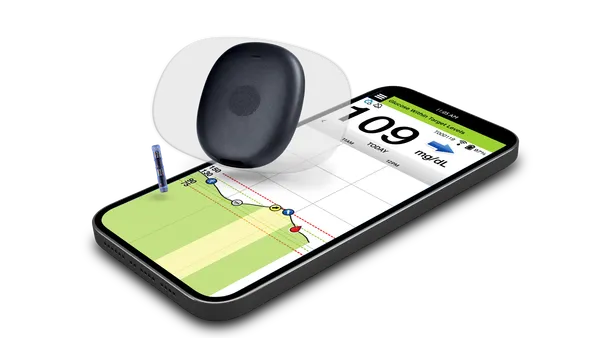Dive Brief:
- Fitbit on Monday launched a new iteration of one line of its wearable devices, including SpO2 sensing to detect changes in blood oxygen levels, which could indicate problems such as sleep apnea or asthma.
- Charge 3, which rolls out in October for $150, includes more than 14 goal-based exercise modes and female health tracking.
- The company also announced a new Sleep Score beta, available later this year, that uses heart rate sensors to provide a nightly score and more complete picture of a user's sleep quality.
Dive Insight:
While it churns out features to its Charge 3 fitness tracker, Fitbit continues to work with FDA to validate clinical uses for its wearables, including in sleep apnea and atrial fibrillation. The San Francisco-based firm is one of nine companies participating in the agency's software precertification pilot program, which aims to smooth certification for developers of low-risk software-based medical devices. Other companies in the pilot include Apple and Johnson & Johnson.
In May, Fitbit introduced new health apps and clock faces for conditions like diabetes and certain cancers. The apps also offer ways for clinical researchers, health plans and employers to support users as they go about their daily activities, according to the company.
"Fitbit continues to harness its data to give users actionable insights into their health and wellness," Shelten Yuen, vice president of research at Fitbit, said in a statement. "In the future, we hope to provide more guidance to our users to reduce the risk of disease so they can become the healthiest versions of themselves."
The company has been steadily making inroads into the clinical space. A study in the Annals of Behavioral Medicine showed that having patients use a Fitbit during hospitalization can lower patient readmissions after surgery for metastatic peritoneal cancer.
And Fitbit recently teamed up with Google to push patient-generated data into health records. The venture will combine Google Cloud's Healthcare API with Fitbit's recently-acquired Twine Health platform to bring together user data and individual health records so doctors can tailor care to a patient's needs.
Rivals including Apple are also eying the space. Recent studies at Cleveland Clinic and Mayo Clinic showed AliveCor's KardiaBand app for Apple Watch to be useful in detecting atrial defibrillation and high potassium levels in the blood, respectively.












